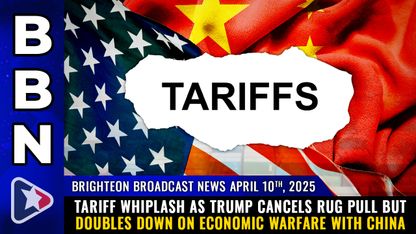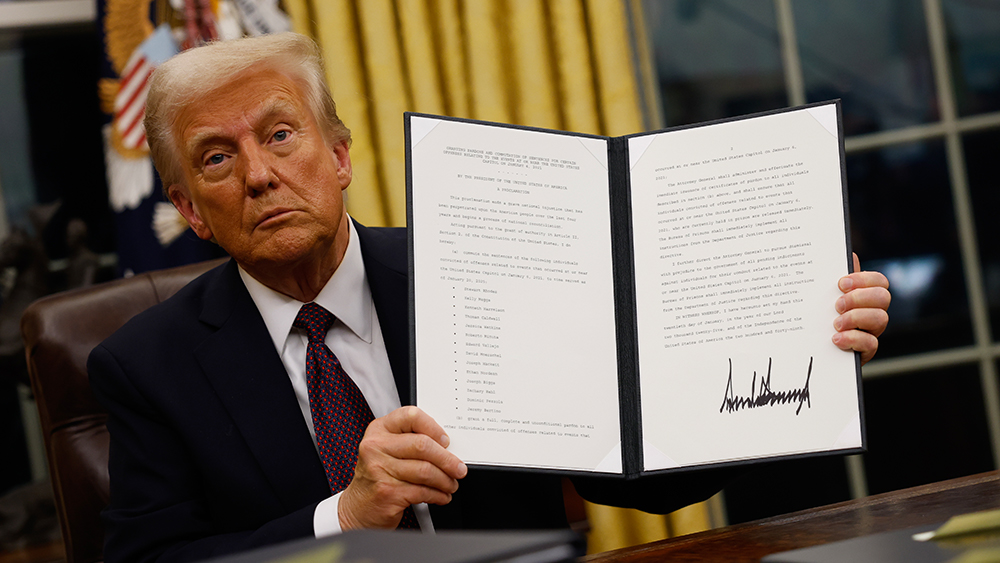
- Deutsche Bank AG has issued a warning about a potential crisis of confidence in the U.S. dollar, driven by escalating global trade tensions and President Trump's new tariffs, which have led to significant market volatility and a sharp decline in the dollar's value.
- The bank's global head of foreign exchange research, George Saravelos, highlighted the risk of major shifts in capital flow allocations that could destabilize currency markets, leading to disorderly movements in the foreign exchange market.
- The U.S. dollar has fallen more than 1.5% against major currencies this week, following Trump's decision to impose tariffs on a wide range of imports. This has prompted investors to seek safe-haven assets, causing stock markets to tumble, oil prices to drop and bond yields to retreat.
- The eurozone is particularly vulnerable to the fallout from the tariffs, with the European Central Bank (ECB) concerned about disruptions to global economic cooperation and inflation expectations. The euro has appreciated sharply, increasing the likelihood of an ECB interest rate cut in April.
- The current situation echoes past periods of economic uncertainty, such as the 2008 financial crisis, but is unique in its scale and the role of trade tensions. The U.S. dollar's status as a safe-haven asset is at risk, and there is growing sentiment that alternative currencies or financial systems may be sought if the dollar's stability continues to erode.
Deutsche Bank AG, one of Europe's largest financial institutions, has issued a stark warning about a potential crisis of confidence in the U.S. dollar. The warning comes as President Donald Trump's recent announcement of sweeping new tariffs has intensified global trade tensions, leading to significant market volatility and a sharp decline in the value of the dollar.
In a note to clients, George Saravelos, the bank's global head of foreign exchange research, highlighted the risk of major shifts in capital flow allocations that could destabilize currency markets. "Our overall message is that there is a risk that major shifts in capital flow allocations take over from currency fundamentals and that FX [foreign exchange market] moves become disorderly," Saravelos wrote.
The dollar's decline and market reactions
The U.S. dollar has experienced a significant drop this week, falling more than 1.5% against the euro and the Japanese yen, and over 1% against the British pound. This decline follows Trump's decision to impose tariffs ranging from 10% to 50% on a broad range of imports from dozens of countries. The tariffs have not only rattled financial markets but also heightened fears of a global trade war, prompting investors to seek safe-haven assets such as gold, German bunds and the Swiss franc.
The impact of these tariffs has been widespread. Stock markets have tumbled worldwide, oil prices have dropped and bond yields have retreated as investors brace for slower economic growth. Other financial institutions, including JPMorgan and Fitch, have issued similar warnings, estimating that the tariffs could reduce U.S. GDP growth by up to 1.5% and potentially tip other major economies into recession.
Implications for the eurozone
The eurozone, already facing economic challenges, is particularly vulnerable to the fallout from the tariffs. The European Central Bank (ECB) has expressed concerns that the U.S. trade measures could disrupt global economic cooperation, destabilize inflation expectations and force a recalibration of monetary policy. Saravelos noted, "The last thing the ECB wants is an externally imposed disinflationary shock from a loss in dollar confidence and a sharp appreciation in the euro on top of tariffs."
The euro has risen more than 2% on Thursday, setting it on track for its best day since 2015. This sharp appreciation, coupled with the potential for a disinflationary shock, could pose significant challenges for the ECB. The probability of an ECB interest rate cut in April has risen to about 90%, based on overnight interest-rate swaps, up from about 70% on Wednesday.
Historical context and global concerns
The current situation is reminiscent of past periods of economic uncertainty, such as the 2008 financial crisis, when global confidence in the U.S. dollar was also tested. However, the current crisis is unique in its scale and the specific role of trade tensions. The U.S. dollar, long considered a safe-haven asset, is now at risk of losing this status as global markets adjust to a new geopolitical order.
The world is watching closely, and there is a growing sentiment that if the U.S. dollar's stability and reliability continue to erode, alternative currencies or financial systems may be sought to replace it. This sentiment is not just confined to financial institutions but is also reflected in broader discussions about the resilience of smaller regional banks and specialized lenders, which are seen as more robust against systemic risks.
Conclusion
Deutsche Bank's warning underscores the profound impact that trade tensions and policy decisions can have on global financial stability. As the U.S. dollar faces a potential confidence crisis, the implications for the global economy, particularly the eurozone, are significant. The coming weeks will be crucial as policymakers and financial institutions navigate these challenges, and the world watches to see whether the U.S. dollar can maintain its position as a global reserve currency.
Sources include:
Please contact us for more information.





































